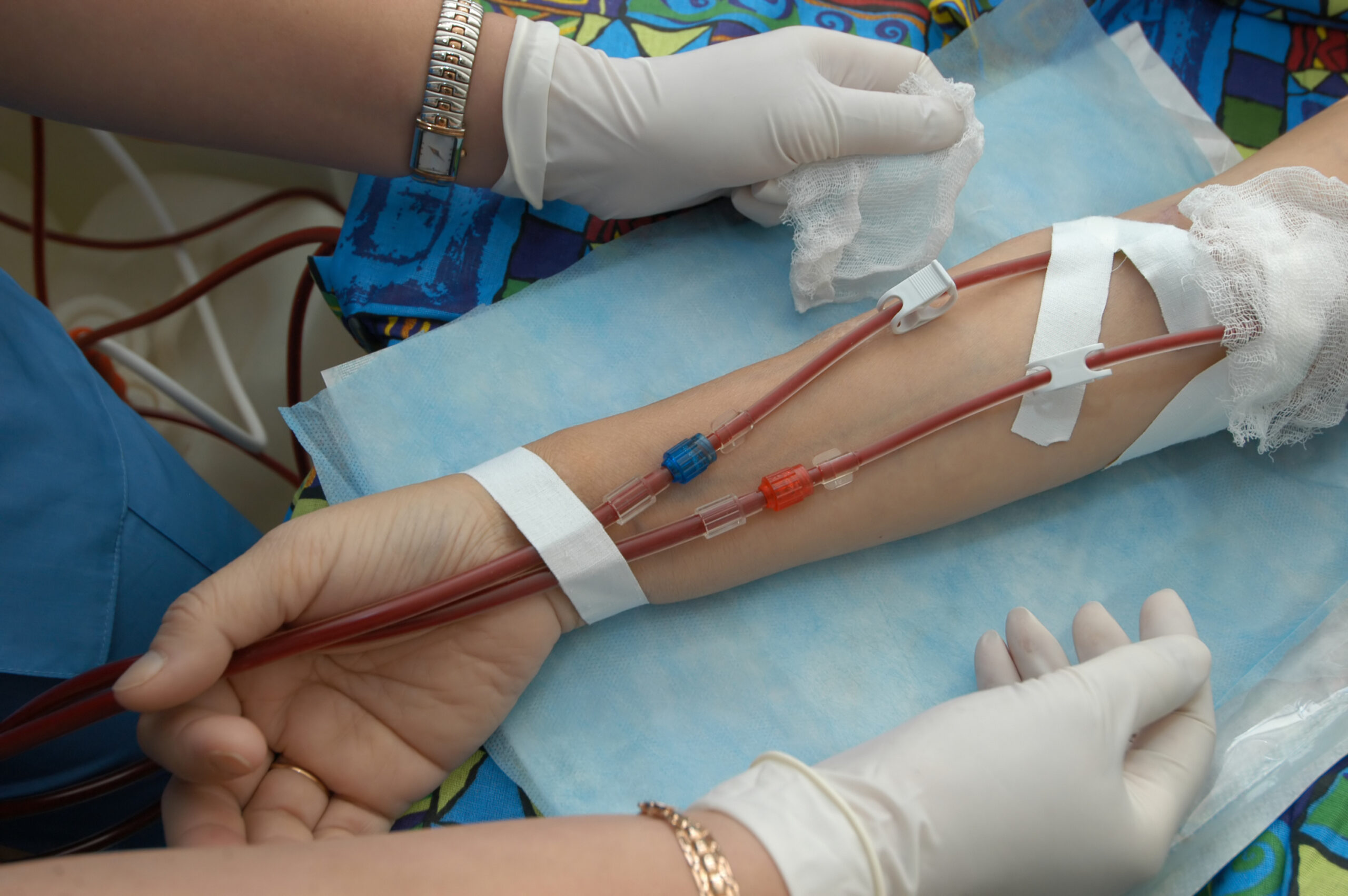Dialysis is a life-saving treatment for individuals with kidney failure or end-stage renal disease. At Texas Kidney Partners, we understand how overwhelming it can be to begin your dialysis journey. Our dedicated team has compiled this comprehensive guide to help you navigate the process and prepare for your first treatment.
What Is Dialysis?
Your kidneys are vital organs that help keep your body healthy by filtering out excess fluids and waste products from your blood and into your urine. Chronic Kidney Disease, or CKD, can impact your kidney function, and without treatment and management, can sometimes lead to kidney failure.
Dialysis is a life-sustaining treatment needed for patients with end-stage renal disease or kidney failure. It helps remove waste products and excess fluids from your blood when the kidneys cannot effectively do this on their own, which is critical for survival. For those with kidney failure, the only alternative to dialysis is having a kidney transplant.
Dialysis is sometimes used as a temporary measure for patients with acute kidney injury, or AKI. It helps maintain function and protects the organs as the kidneys recover.
What Are the Signs of Kidney Failure?
Warning signs of decline in kidney function or kidney failure requiring dialysis may include the following:
- Urinating more or less than usual
- Bubbly, foamy, or frothy urine
- Swelling of the feet and ankles
- Shortness of breath or chest pain
- Increased blood pressure that is hard to control
- Decreased mental sharpness
- Headaches, fatigue, weakness
- Loss of appetite, nausea, or vomiting
- Difficulty falling asleep or staying asleep
- Muscle cramps and twitching
- Ammonia breath or a metallic-like taste in the mouth
If you experience any of these symptoms, contact Texas Kidney Partners to schedule a consultation. Dr. Kanu will evaluate your unique needs and recommend the best course of action to help you optimize your health outcome.
What Are the Types of Dialysis?
There are two main forms of dialysis: hemodialysis and peritoneal dialysis. Hemodialysis involves filtering your blood through a machine outside the body. It is usually performed at a dialysis center for 3-4 hours three times a week. In some cases, hemodialysis can be performed at home.
Peritoneal dialysis, on the other hand, uses your abdominal lining, or peritoneum, to filter your blood inside the body. It involves instilling a special dialysis fluid through a catheter placed in the abdomen. Waste products and excess fluids move from your blood into the dialysis fluid, from where they are then drained from your abdomen. The process is repeated several times daily, usually at home, allowing you to perform treatments while going about your daily activities.
Dr. Kanu and his team at Texas Kidney Partners will evaluate your unique needs and recommend the dialysis option that best suits you.
What Can You Expect After Dialysis?
Regardless of your type of dialysis, you will likely feel tired after treatment. Dialysis may also lead to side effects, like itchiness, muscle cramps, weight gain, or infection. Despite the possibility of these side effects, many of our patients continue to lead happy, productive lives.
Living with Dialysis
At Texas Kidney Partners, we understand the anxiety that often comes with hearing that you need to start dialysis. Adjusting to your new life may pose a challenge, but most of our patients feel better and lead full, active lives. For the best quality of life, it is important to follow your treatment plan, which may include the following:
- Adhering to your scheduled treatments
- Taking your prescribed medications
- Following dietary restrictions
- Managing your fluid intake
- Maintaining an active lifestyle
Once you adjust to your new normal, you will find yourself feeling better than you have felt in a long time!
Comprehensive Kidney Care Near Me in McKinney
At Texas Kidney Partners, we understand the challenges and changes that come with dialysis. Dr. Kanu and his compassionate team are here to provide you with guidance, address your concerns, and support you every step of the way. Contact us at 469-613-2343 to schedule a consultation, or complete our online form to request an appointment today!

